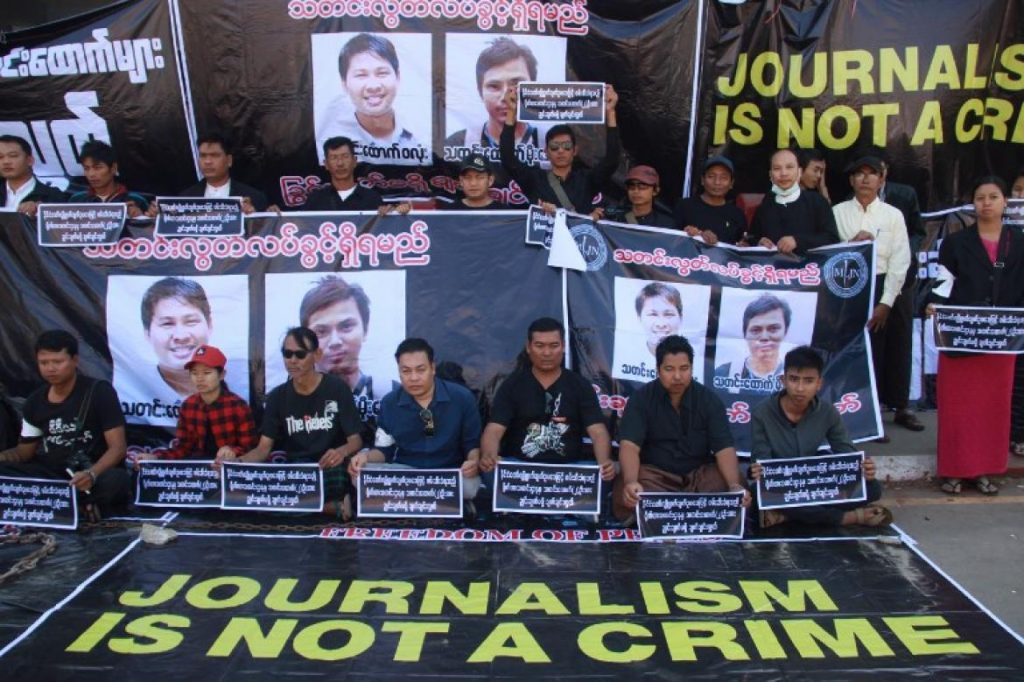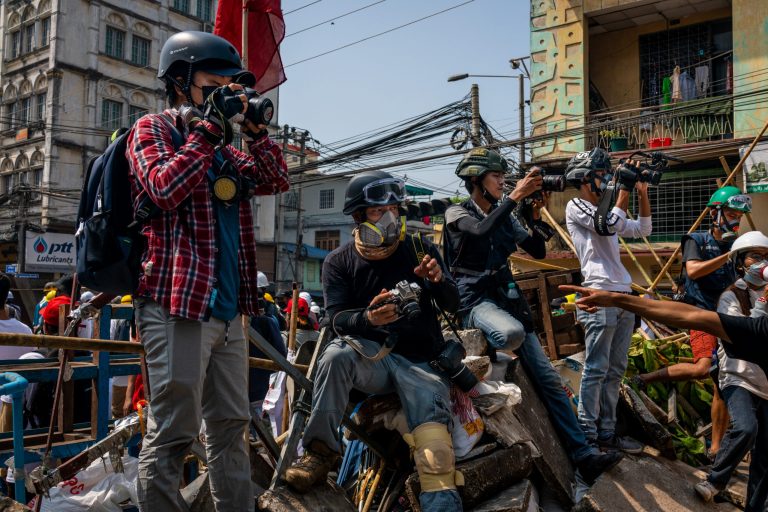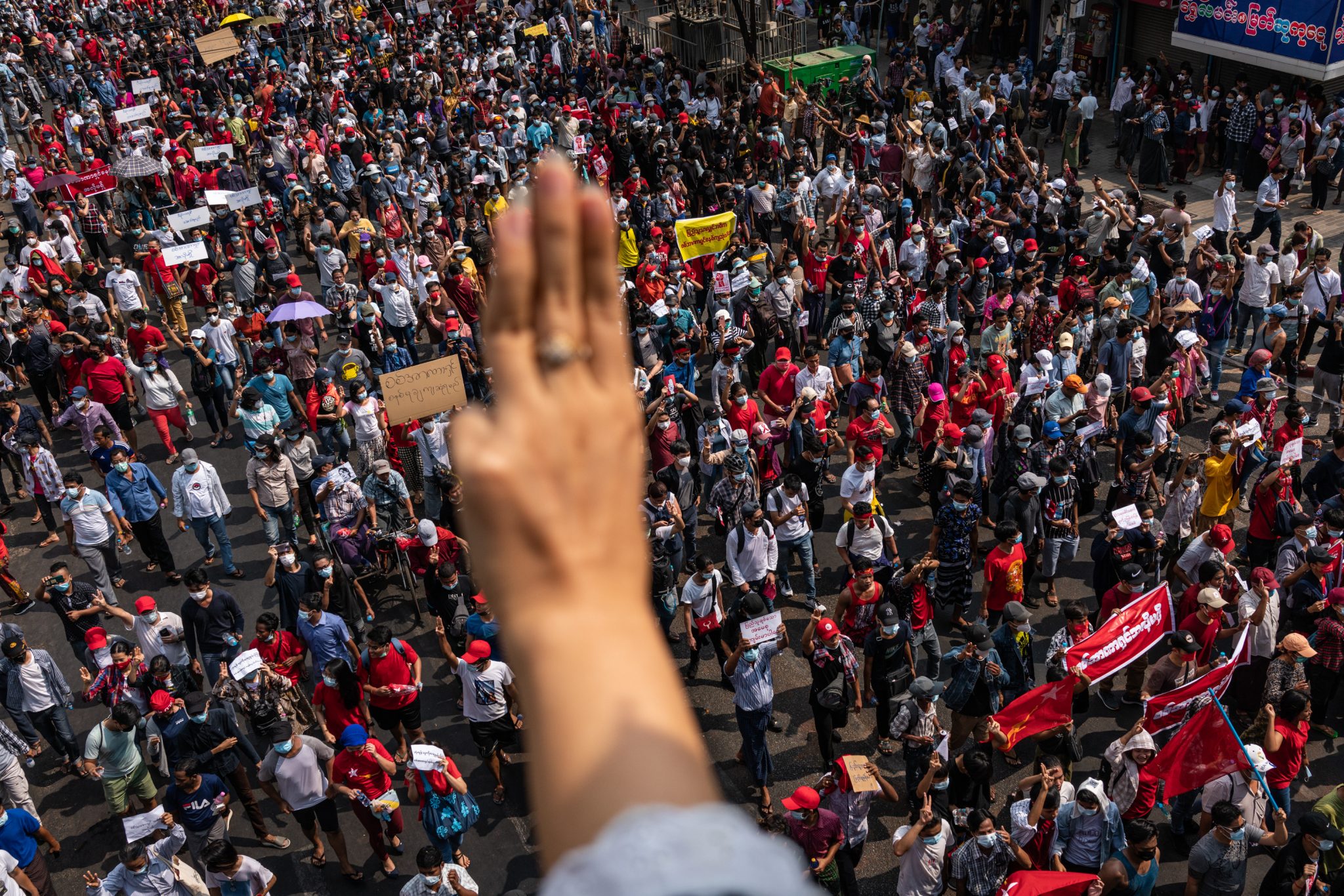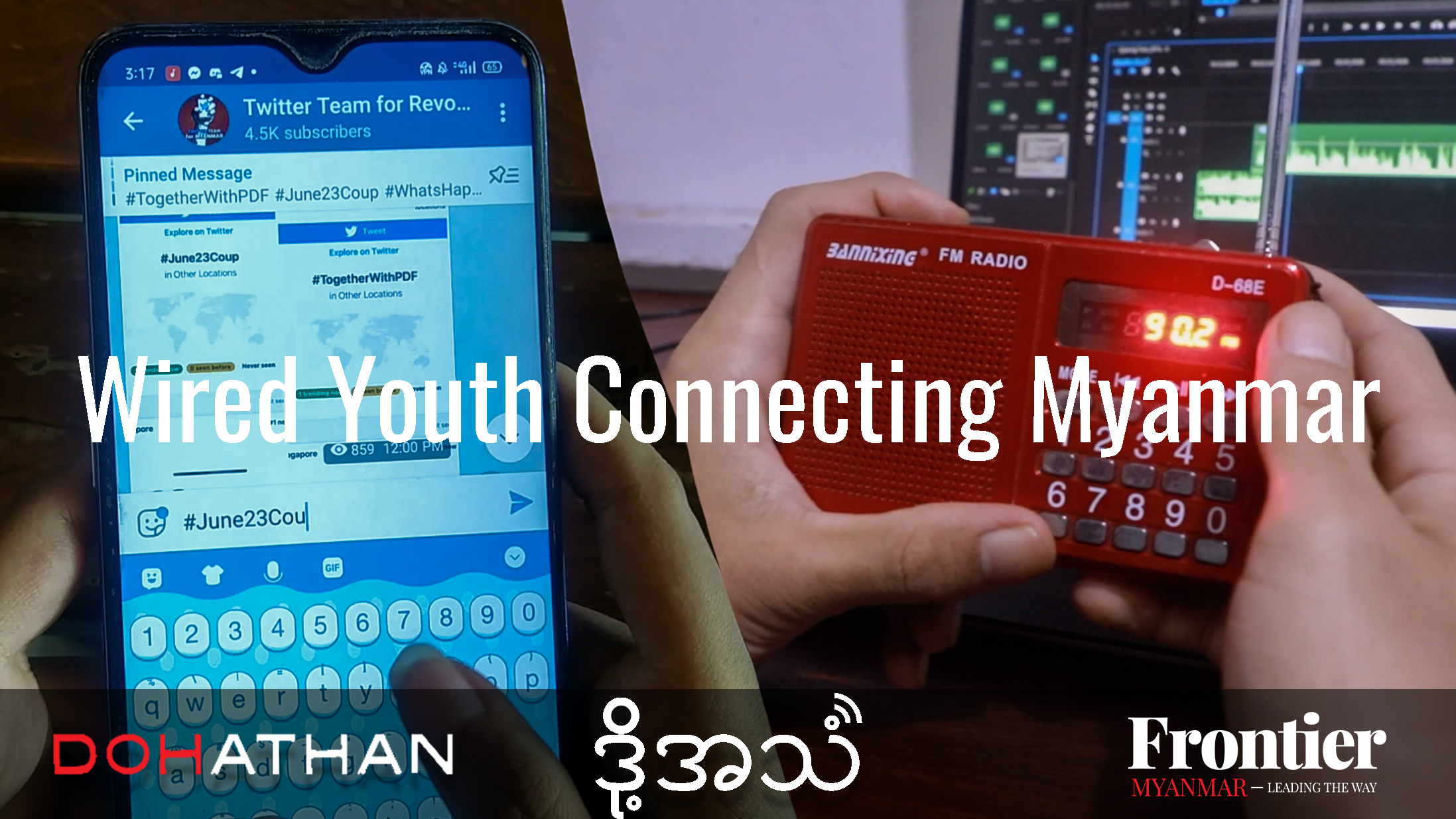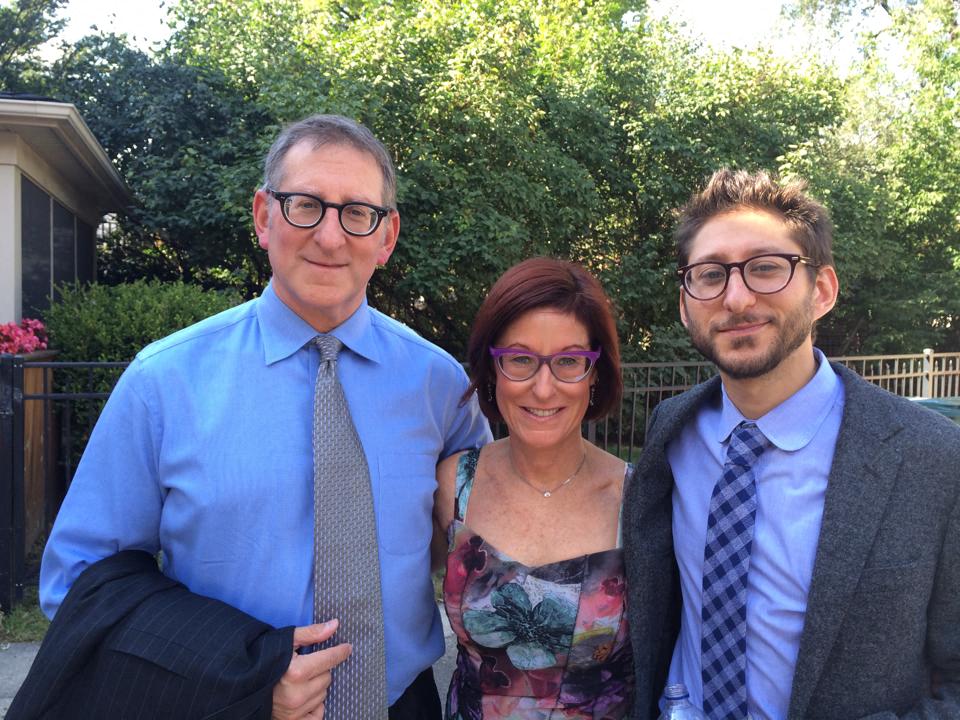By KYAW LIN HTOON | FRONTIER
YANGON – Journalists in Myanmar believe that their freedom has declined over the past year and that legal, physical and psychological violence towards the media is increasing, according to the findings of a survey released yesterday by Free Expression Myanmar.
A coalition of organisations recorded the views of around 200 journalists nationwide between December 2017 and April 2018, on a range of issues around their work. They found that the government, including the military, is seen as the main cause of deteriorating freedom.
Journalists say there is little evidence that the government or the courts are trying to address either violence towards the media or the decline in freedom of expression.
Asked to rate the government’s success in defending media freedom, 79 percent of those surveyed chose ‘very low’ and ‘low’ while only 2 percent chose ‘high’ or ‘very high’.
Support more independent journalism like this. Sign up to be a Frontier member.
“[They] are frustrated by the government’s failure to implement its election manifesto commitments,” reads the report.
In surveys conducted in 2015 and 2016, Free Expression Myanmar found that journalists were primarily concerned by threats from the Constitution and media-specific laws. But concerns have since expanded to include laws on association, telecommunications, privacy, and official secrets.
Journalists ranked the Electronic Transactions Law as the greatest threat to freedom of expression (19 percent) followed by the Official Secrets Act (17 percent), the Telecommunications Law (14 percent), the Constitution (13 percent) and the Unlawful Associations Act (13 percent).
In the Penal Code, they viewed the section on sedition as the most threatening (38 percent), while ranking defamation (22 percent) and insulting religion (19 percent) second and third.
At least 11 journalists were arrested last year under repressive laws, for gathering information, travelling to conflict areas to conduct their work and for criticising officials.
At the launch of the report in Yangon yesterday, U Zin Linn, a consultant to Burma News International, said journalists also find it hard to gain access to government officials.
“Journalists should be allowed to get into the government offices and parliaments to get information,” he said. In 2012, before pre-publication censorship was abolished, Myanmar was ranked 174 of 180 countries on the World Press Freedom Index, he said. Following reforms to the media industry, its ranking rose, to reach 131 in 2017.
“But this year it decreased to 137. Officials from the Ministry of Information should admit to [the decline in press freedom] but they don’t,” he said. “The Union Minister also said it is not a significant decline. So that shows how the government perceives media freedom in Myanmar.”
A spokesperson for the Ministry of Information was not immediately available for comment.
U Han Zaw, secretary of the PEN Myanmar Center pointed out that the fear of being sued was increasing among journalists, resulting in greater self-censorship.
Free Expression Myanmar urged the government, including the military, to conduct an open and inclusive consultation with journalists, to establish an action plan to improve media freedom.
“This consultation should focus on designing a holistic approach to legal reform which includes both changing laws and changing the behaviors of the government officials,” it said.
The report recommends a separate but interlinked public consultation on ending state control of media, including military-owned press, and calls on the government to remove all barriers to the media’s access to conflict areas.


